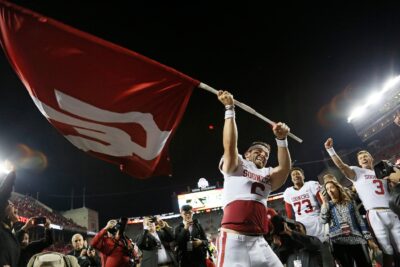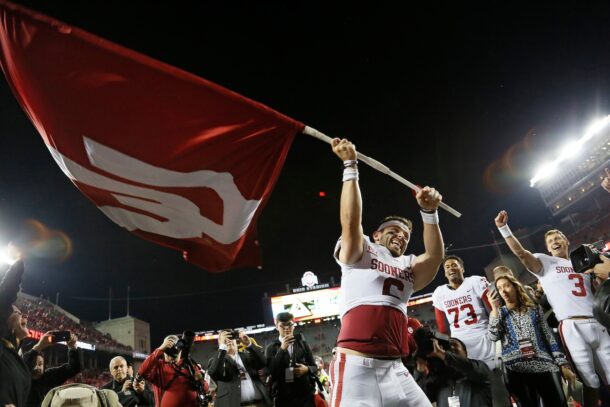How many wins would Tennessee have if Dobbs played all season?
By Jason Hall
Published:
Joshua Dobbs has sparked Tennessee’s offense. Since making his debut against Alabama in Week 9, the sophomore has given the Vols some much needed mobility from the quarterback position, rushing for 241 yards and three touchdowns.
Dobbs made his first start of the season against South Carolina last week, leading Tennessee to a 45-42 overtime victory. He became the first Vols quarterback to throw for over 300 yards, while rushing for over 100. Dobbs also became the first Tennessee player to win SEC Offensive of the Week since Tyler Bray in 2012.
Hindsight is 20/20, but for the sake of argument, one must ask “why?” Why wasn’t Dobbs named the starting quarterback in preseason if he is capable of such an output?
Head coach Butch Jones and his staff planned to redshirt the sophomore before playing him out of necessity in Week 9. Senior Justin Worley enjoyed the best season of his career before needing season-ending surgery. Though he never matched Dobbs’ output against South Carolina, Worley did little to demand talks of a quarterback change, as many expected less from the Vols bench.
Tennessee has a young roster, with many of its most talented players being underclassmen. The idea to redshirt Dobbs as the incoming class, current freshmen and sophomores develop into experienced veterans isn’t a dumb move. However, keeping such a talent off the field is and may have caused the Vols several wins this season.
Here’s a look at Tennessee’s five losses from least winnable to most and a hypothetical explanation of how Dobbs could have changed the outcome:
Least Winnable
Alabama- Dobbs made his debut in this game. Some may argue that if he was named the starter, Tennessee would have faced a better outcome than its 34-20 loss. Granted, Dobbs did face a 14-0 deficit on his first possession– which grew to 20-0 on the second– it’s not as if his presence would have affected the early problems on defense that dug Tennessee into such a hole.
Less winnable, but still possible
Oklahoma- In Week 3, Tennessee fans realized that they had the worst offensive line in the SEC. Justin Worley was a human crash test dummy for the Oklahoma pass rush. However, Tennessee’s defense forced the Sooners to a 3-of-12 third down conversion rate and forced several field goals, due to its offense handing over great field position. With Dobbs in at quarterback, the Vols offense could have evaded the heavy Oklahoma pass rush and narrow what was a close score early.
Ole Miss- Before Tennessee played Ole Miss, the Rebels looked unbeatable. Despite coming off two losses since, the Rebels still have one of the nation’s best defenses. Like Oklahoma, Ole Miss forced Worley to make desperate decisions, which led to turnovers and a lack of production. However, Tennessee managed to keep the game close early. With Dobbs providing offense, a blowout loss seems less likely.
Potential Upset
Georgia- You can’t fault Justin Worley for this one. The senior quarterback threw for 264 yards and three touchdowns on 23-of-35 passing. However, Worley missed three crucial possessions in the second half with an elbow injury, while Peterman failed to lead the Vols offense. If Dobbs is as good as many are starting to believe, the Georgia game would have been even more winnable with him as the starter. Even if he was the second option, this game would have been more winnable than with Peterman making an appearance.
Most Winnable
Florida- This game was a mess. Tennessee held Florida scoreless through three quarters, before the Gators scored 10 unanswered points. The Vols offense accounted for zero, while kicker Aaron Medley provided the only scores on three field goals. Worley spent another game on the ground after being dominated by an opposing pass rush. With Dobbs in, the Vols would have countered the Gators defense and provided offensive production.
A former freelance journalist from Nashville, Jason covers Tennessee, Vanderbilt and Kentucky







